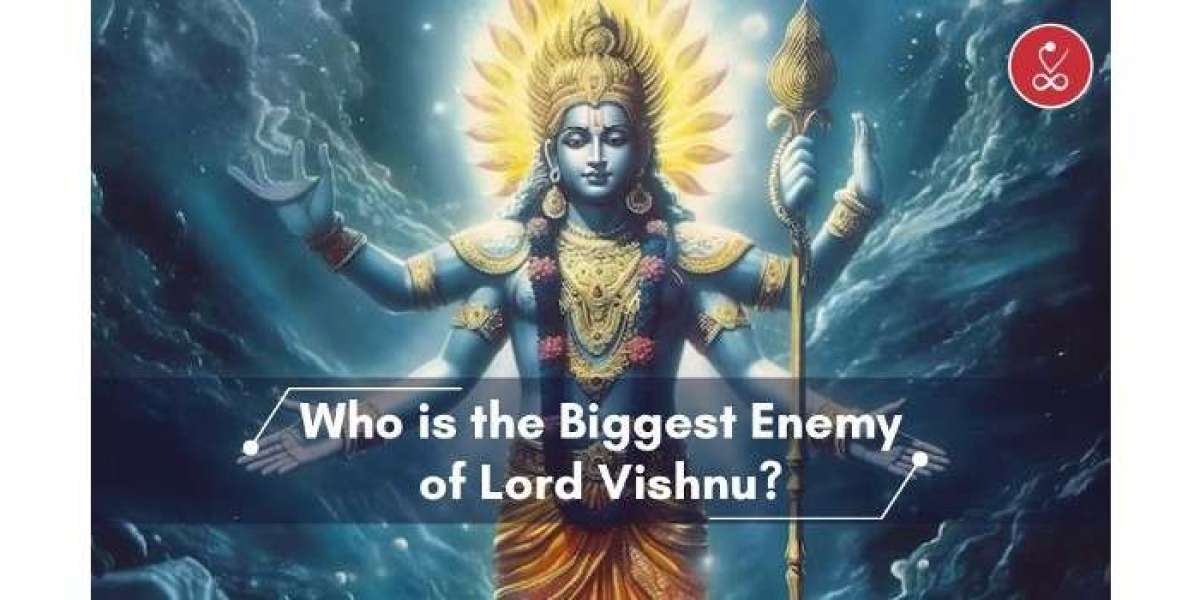Introduction
Ever wondered why divine beings have enemies? It's fascinating to dive into the mythological tales where gods and demons clash, each representing profound cosmic principles. Understanding these enmities can reveal a lot about the values and lessons these stories aim to impart. Today, let's explore the biggest enemies of Lord Vishnu, one of the principal deities in Hindu mythology.
The Nature of Divine Conflicts
Why do gods have enemies? It's not just about epic battles and dramatic confrontations. These conflicts symbolize the eternal struggle between good and evil, order and chaos. They highlight the balance that must be maintained in the universe.
Understanding Lord Vishnu
So, who exactly is Lord Vishnu? As part of the Hindu Trinity, alongside Brahma and Shiva, Vishnu is the preserver and protector of the universe. His role is to maintain order and harmony, stepping in whenever cosmic balance is threatened.
Hiranyakashipu
Hiranyakashipu, a powerful demon king, is one of the most formidable enemies of Lord Vishnu. His story is filled with arrogance, tyranny, and a deep-seated hatred for Vishnu. After receiving a boon from Lord Brahma that made him nearly invincible, Hiranyakashipu believed he could conquer the world and defy the gods. However, his son Prahlada was a devout follower of Vishnu, leading to a familial clash of epic proportions. In the end, Vishnu incarnated as Narasimha, a man-lion, to bypass the boon and slay Hiranyakashipu, symbolizing the triumph of good over evil.
Ravana
Ravana, the ten-headed demon king of Lanka, is another significant enemy of Vishnu. His story is central to the epic Ramayana. His immense ego and desire for power overshadow Ravana's intelligence and devotion to Shiva. His abduction of Sita, the wife of Vishnu's avatar Rama, set the stage for a monumental battle. Rama's quest to rescue Sita and defeat Ravana illustrates the importance of dharma (righteousness) and the inevitable downfall of those who stray from it.
Shishupala
Shishupala, a cousin of Krishna, harbored a lifelong grudge against him. Born with three eyes and four arms, Shishupala was destined to be killed by Krishna. Despite being granted a hundred pardons for his offenses, Shishupala's persistent hatred led to his demise at Krishna's hands during the Rajasuya Yagna. His story emphasizes the destructive power of envy and the futility of harboring hatred.
Kamsa
Kamsa, the wicked king of Mathura, lived in constant fear of a prophecy that predicted his death at the hands of his sister Devaki's eighth son. His paranoia drove him to imprison Devaki and kill her children. However, Krishna, her eighth son, survived and eventually fulfilled the prophecy by killing Kamsa. This story underscores the themes of destiny, divine intervention, and justice.
Madhu and Kaitabha
Madhu and Kaitabha were two demons born from the earwax of Vishnu during his cosmic slumber. They challenged Vishnu and engaged in a fierce battle with him. Their defeat symbolizes the destruction of ignorance and the victory of divine wisdom. These demons represent the chaotic forces that the divine must constantly subdue to maintain cosmic order.
Bali
King Bali was a powerful and generous demon king who Vishnu eventually overthrew in his Vamana avatar. Disguised as a dwarf Brahmin, Vishnu asked for three paces of land. Bali agreed, only to be outwitted as Vishnu expanded to cover the entire universe in two steps, leaving Bali with no place to stand. Bali's story is a lesson in humility and acknowledging the divine play in the universe.
Other Adversaries
Vishnu's mythology includes encounters with numerous other adversaries, such as Bhasmasura, who attempted to turn him into ashes, and Jalandhara, a demon born from Shiva's anger. Each adversary adds to the rich tapestry of tales, each with its unique moral and spiritual lessons.
Symbolism of Vishnu's Enemies
The enemies of Vishnu are not just characters in a story; they symbolize various human vices and cosmic imbalances. Hiranyakashipu represents unchecked ego and tyranny, Ravana symbolizes the dangers of desire and arrogance, while Kamsa illustrates the consequences of paranoia and fear. These stories teach us about the virtues of humility, righteousness, and the power of divine justice.
The Role of Avatars
Vishnu's avatars are central to his mythological narrative. Each incarnation, whether Narasimha, Rama, Krishna, or Vamana, serves a specific purpose to restore balance and dharma. These avatars highlight the belief that the divine will always find a way to protect and preserve the universe.
Lessons from Mythological Conflicts
The conflicts between Vishnu and his enemies offer timeless lessons. They remind us that good will ultimately prevail over evil, that humility and righteousness are paramount, and that divine justice is inevitable. These stories are as relevant today as they were thousands of years ago, offering guidance and inspiration.
Read Our Blogs: When will Kalki Avatar born on Earth
Conclusion
The tales of Lord Vishnu and his enemies are more than just mythological narratives; they are rich with symbolism and lessons that continue to resonate. From Hiranyakashipu to Ravana, each enemy of Vishnu teaches us about the eternal struggle between good and evil, the importance of maintaining dharma, and the virtues of humility and righteousness. These stories inspire us to strive for a balanced and harmonious life, guided by the principles of truth and justice.
FAQs
Who was Lord Vishnu's most powerful enemy?
Hiranyakashipu is often considered one of Vishnu's most powerful enemies due to his near-invincibility granted by a boon.
Why did Ravana hate Vishnu?
Ravana's hatred stemmed from his arrogance and desire for power, leading him to challenge Vishnu's authority.
What is the moral of Hiranyakashipu’s story?
The story of Hiranyakashipu teaches us about the perils of ego and the inevitability of divine justice.
How did Krishna defeat Kamsa?
Krishna defeated Kamsa by overpowering him in a wrestling match, fulfilling the prophecy of Kamsa's demise.
What lessons do we learn from Vishnu's battles?
Vishnu's battles teach us about the triumph of good over evil, the importance of righteousness, and the need for humility and devotion.








